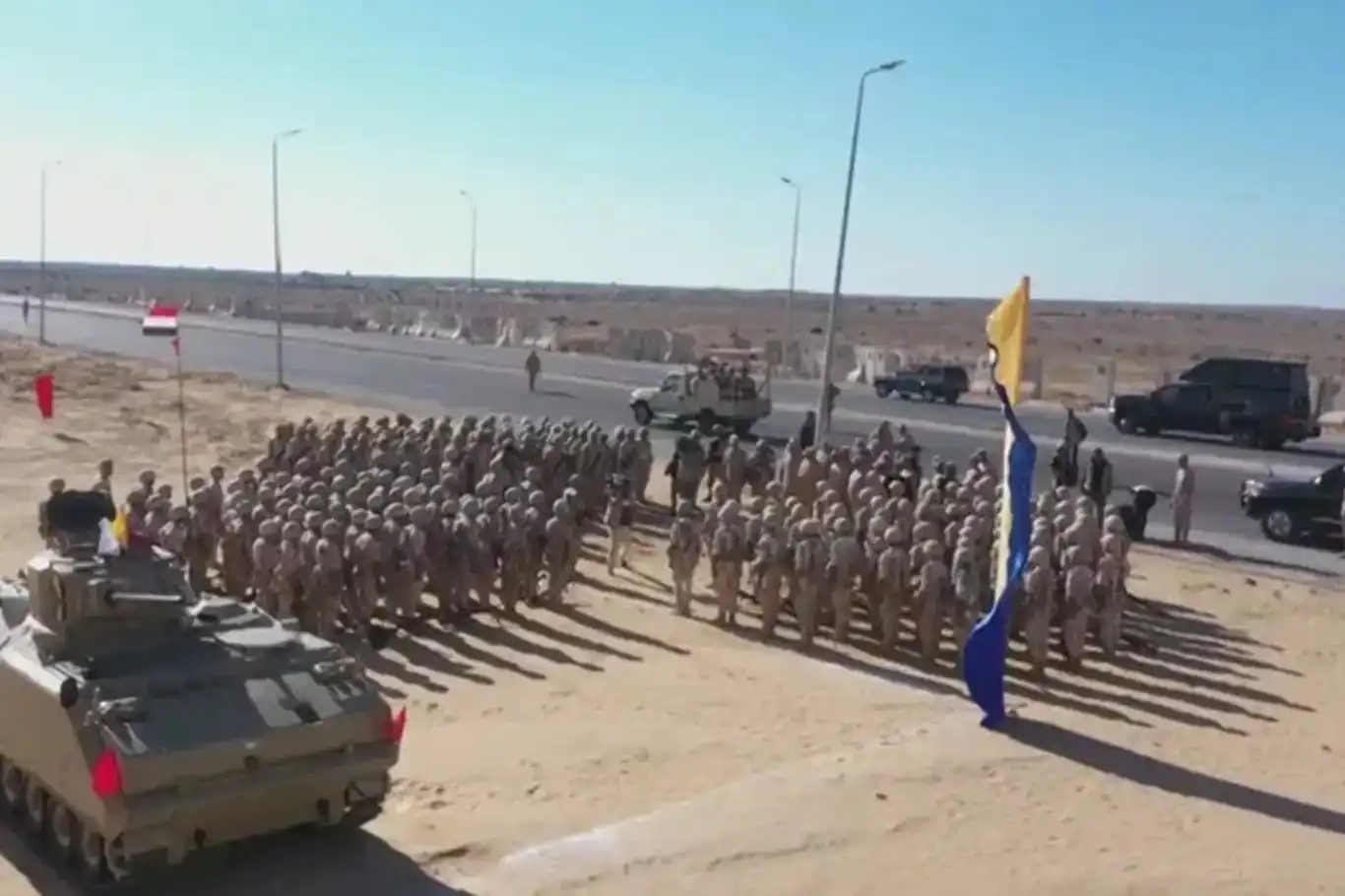Israel requests U.S. intervention over Egypt’s military build-up in Sinai Peninsula


The Prime Minister of the Occupying Government has urged the Trump administration to exert pressure on Cairo to halt its military augmentation in the Sinai Peninsula, warning that the developments risk undermining the 1979 peace treaty and destabilizing the region.
Israeli Prime Minister Benjamin Netanyahu has formally requested that the United States intervene to curb Egypt’s ongoing military enhancements in the Sinai Peninsula, according to senior Israeli officials.
Channel 12 reported that Israeli authorities view Cairo’s build-up as “an additional flashpoint” in bilateral relations. After direct talks with Egypt yielded no resolution, Israeli officials turned to Washington for support.
During a meeting with U.S. Secretary of State Marco Rubio in Jerusalem last Monday, Netanyahu characterized Egypt’s operations as “fundamental violations of the peace agreement” and emphasized Washington’s role as the principal guarantor of the 1979 Egypt-Israel Peace Treaty.
Israeli sources claim that Egypt has developed military infrastructure in zones restricted to light arms, expanded airbase runways to accommodate combat aircraft, and constructed underground facilities potentially capable of housing missiles. While there is no evidence of missile storage, Israeli authorities maintain that Egypt has provided no satisfactory explanation for the installations.
“The Egyptian deployment exceeds the scope agreed upon in last year’s arrangements, generating serious security concerns,” one official said. These concerns are further exacerbated by a reduction in U.S.-led multinational air patrols over Sinai, which has limited monitoring capabilities.
Egyptian authorities dismissed the claims, noting that Washington has not raised the issue with Cairo in recent weeks.
Under the 1979 peace treaty, Sinai is divided into three zones: Area A, near the Suez Canal, allows a full military division; Area B permits only lightly armed border guards; and Area C, bordering Gaza, is demilitarized, with police forces equipped solely with small arms.
Observers say Egypt’s military reinforcement coincides with growing apprehension over Israeli plans to relocate Palestinians from Gaza into Sinai over the past two years. Cairo has strengthened its border forces, citing the refugee flows as a “national security threat,” and warned against any Israeli actions that could jeopardize the peace agreement.
Two weeks ago, following Israel’s attack on Qatar, Egyptian President Abdel Fattah el-Sisi criticized Netanyahu’s government for “jeopardizing the peace accord and hindering further regional normalization.” Cairo also announced plans to establish a joint Arab force in response, intensifying Israeli concerns over Egypt’s strategic posture in the region. (ILKHA)
LEGAL WARNING: All rights of the published news, photos and videos are reserved by İlke Haber Ajansı Basın Yayın San. Trade A.Ş. Under no circumstances can all or part of the news, photos and videos be used without a written contract or subscription.
The Islamic Emirate has firmly rejected U.S. President Donald Trump’s demand for the return of Bagram airbase, declaring the strategic facility a sacred and inseparable part of Afghan territory.
Hospitals across the Gaza Strip have received the bodies of 38 more Palestinian civilians killed in Israeli attacks over the past 24 hours, alongside 190 injured, according to the Gaza Ministry of Health.
A striking and unprecedented admission has emerged from within the Israeli media establishment, as veteran political analyst Lior Ben-Shaul, writing in the Hebrew daily Yedioth Ahronoth, warned that the Zionist entity is approaching total collapse.
The Turkish-based Hope Caravan Foundation (Umut Kervanı Vakfı), known for its extensive humanitarian and aid projects across Afghanistan, has inaugurated the newly built Aqsa Mosque in Gazni province with prayers and a ceremony attended by foundation representatives.